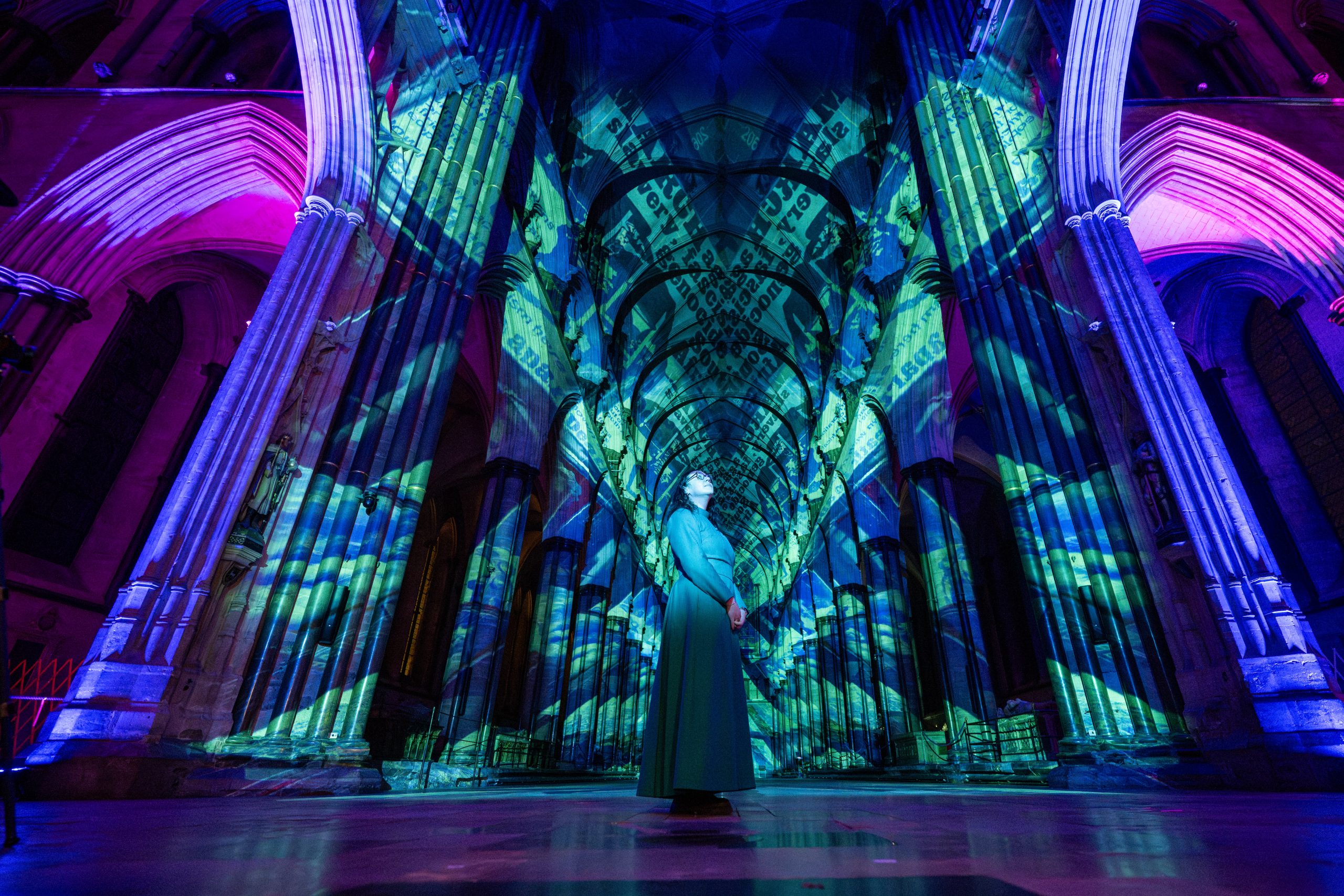Lost Worlds

Sunday 9 November 2025, The Third Sunday before Advent, Remembrance Sunday
The Very Reverend Nicholas Papadopulos
1 Kings 3:1 – 15
Romans 8: 31 – end
‘Into my heart an air that kills
From yon far country blows:
What are those blue remembered hills,
What spires, what farms are those?That is the land of lost content,
I see it shining plain,
The happy highways where I went
And cannot come again’
George Orwell reckoned that, aged seventeen, he knew the whole of A Shropshire Lad by heart. In the early years of the twentieth century, he wrote, AE Housman was probably ‘the writer who had the deepest hold upon the thinking young’. It’s well known now that Housman wrote his extraordinarily successful sequence of sixty-three poems while working as a professor of Latin in London. He was born in Worcestershire, and had scarcely visited Shropshire. Instead, the county functions as a poetic realm of blissful memory. It is a lost world. The irony is that the thinking young of whom Orwell wrote, so moved by the nostalgic pathos of Housman’s verse, were to lose not an imagined world but a real one in the calamity of the Great War. These two experiences of loss – that of a generation broken by the brutal conflict of the era into which it was born, and that of a gifted academic giving lyrical voice to his inner anguish – are elements of humanity’s inescapable inheritance.
Visitors to Sarum Lights last week saw gorgeous mediaeval manuscript illuminations, and the swagger of the age of chivalry; they saw cartographic depictions of the continents as our forebears understood them and a glorious historical cavalcade projected onto the arches and vaults of the nave. Visitors were also invited to make and leave behind them a record of something that they had lost. The briefest glance at these is deeply moving. Friends and family members are recalled by name; deep sadness finds a voice; heartfelt gratitude is expressed for what has been.
Our inescapable inheritance. We live in the 2020s not the 1920s and not the 1820s; the lives we lead today are not the lives that men and women led then. We look back and glimpse golden eras, as did Jesus when he spoke of the riches of King Solomon: then, there was a rules-based international order; then, democracy and human rights were prized; then, truth-telling was expected of every person in authority. We look back and glimpse dark ages, as did St Paul when he quoted his people’s scriptures to his Roman audience: then, childhood diseases raged, unchecked by vaccination; then, the notion of equal treatment for men and women was barely even a notion; then, education, healthcare and access to justice were the privilege of the wealthy few.
Golden era and dark age: neither one nor the other, but both are real, of course – for what is inescapable is that to be human is to live amidst change, and that this change will sometimes be personal and profoundly sad. Each of us has a land of lost content; each of us has happy highways to which we cannot return; each of us has lost something or someone and each of us has felt that in so losing we have lost our world. Housman’s poems have been in print continually since 1896 because they acknowledge our loss and because they give words to it that we cannot muster; Remembrance flourishes as a season more than a century after its inception because it serves our need to honour our dead – all our dead.
It is this inheritance of change and loss that we acknowledge tonight; not to do so would be dishonest. But this is a holy place, built to honour One in whom there is no darkness, decay, or death. And into this inheritance another poet speaks. We cannot know her name, but we heard her words in the opening verse of tonight’s psalm: ‘I waited patiently for the Lord: and he inclined unto me, and heard my calling’. Into our confusion, into our grief, into our lostness speaks the voice of God, and it tells us this: we may believe ourselves lost, but our profoundest truth is that we are found; we are known; we are held.




